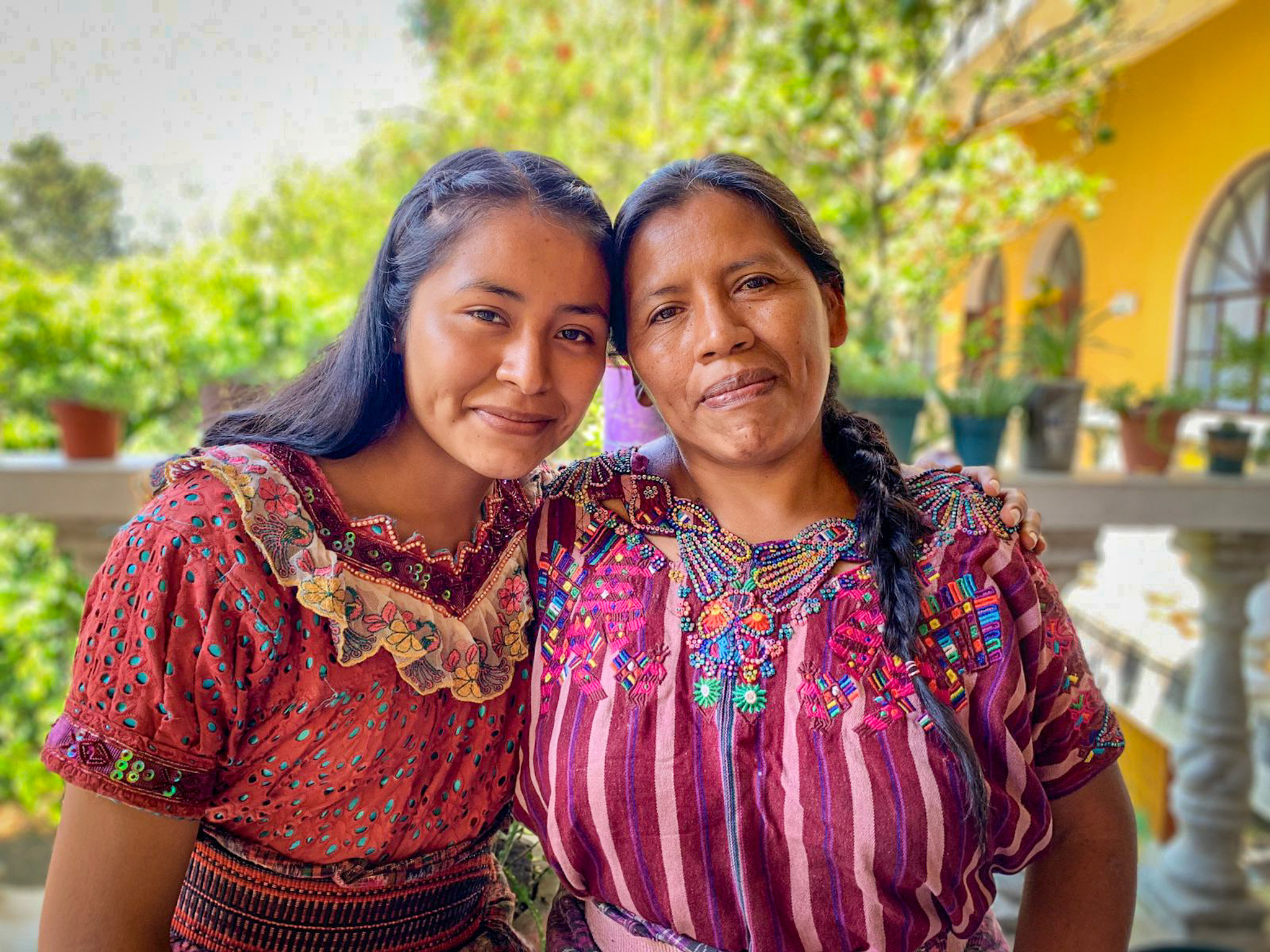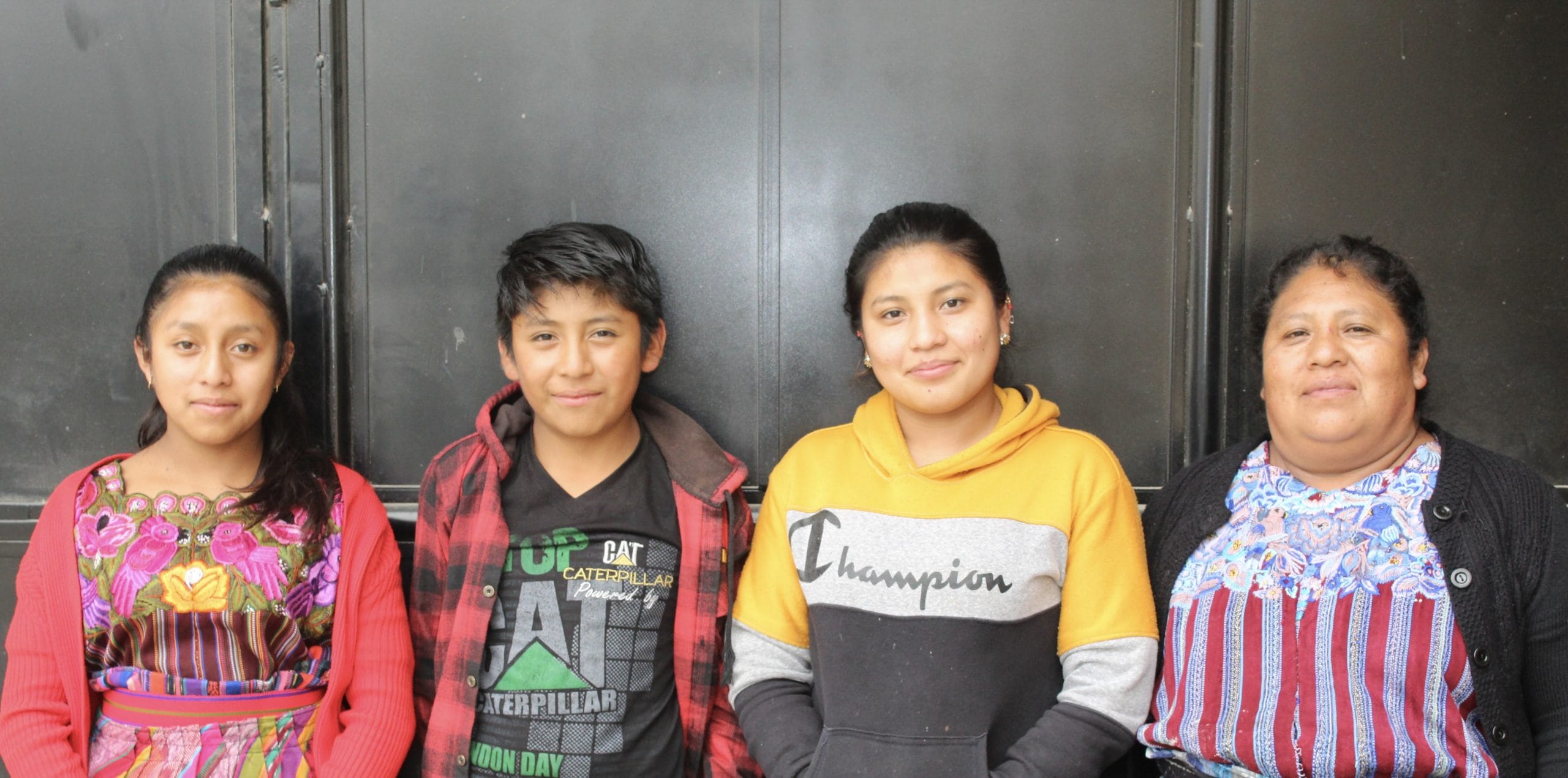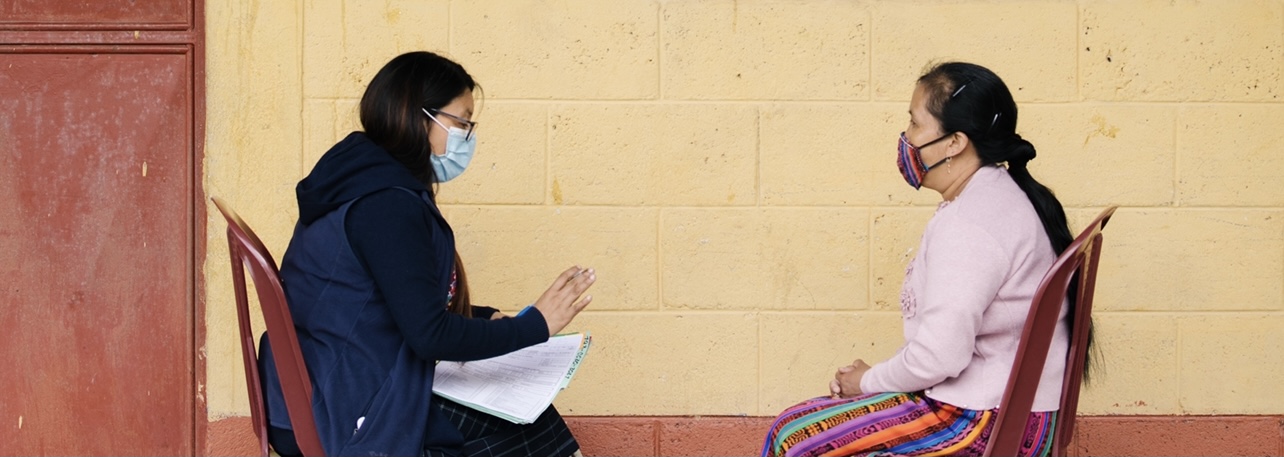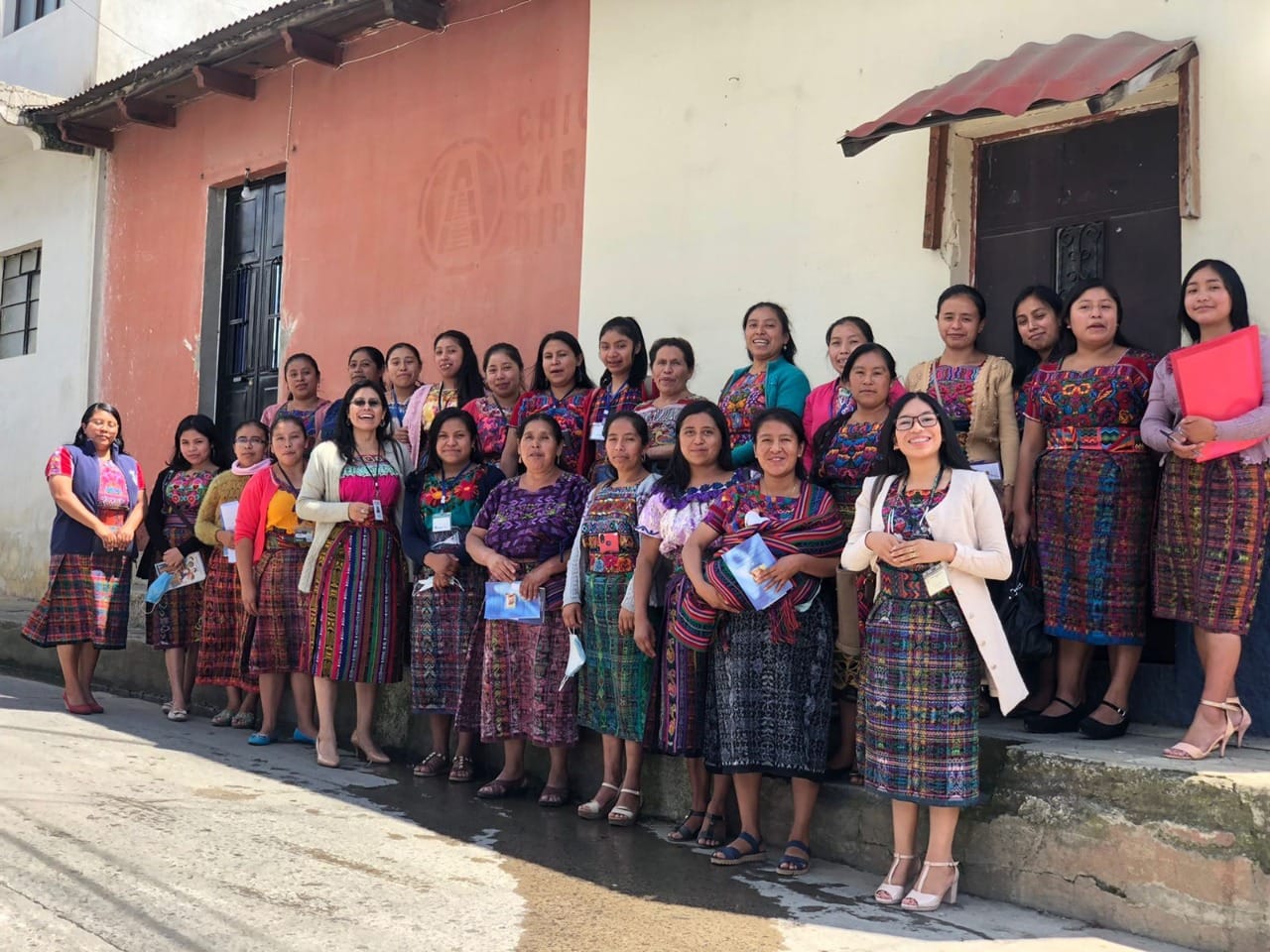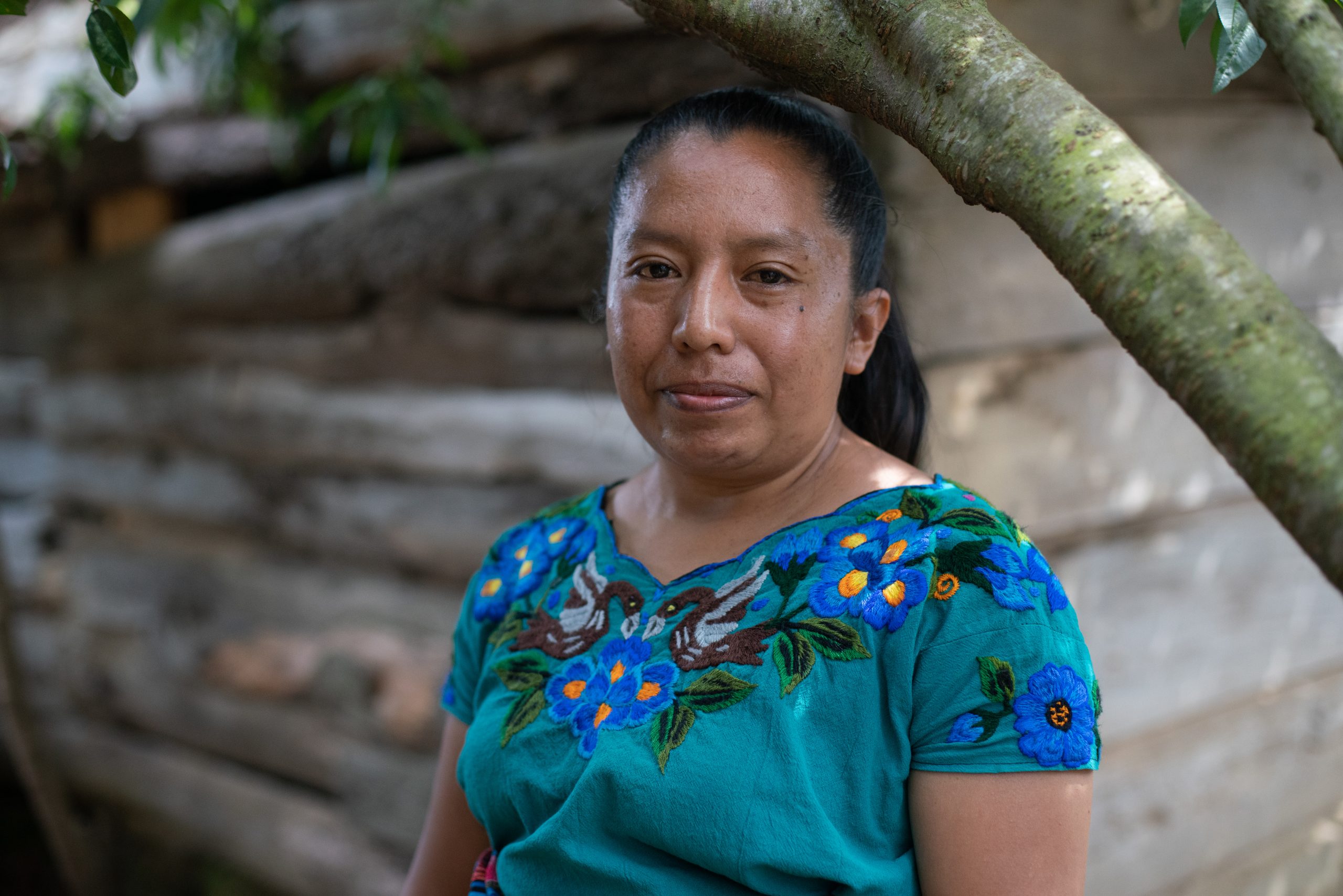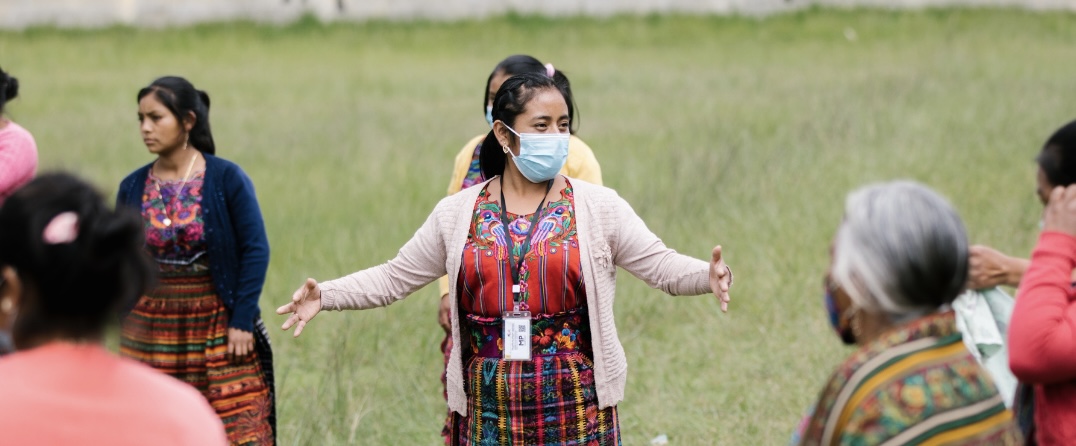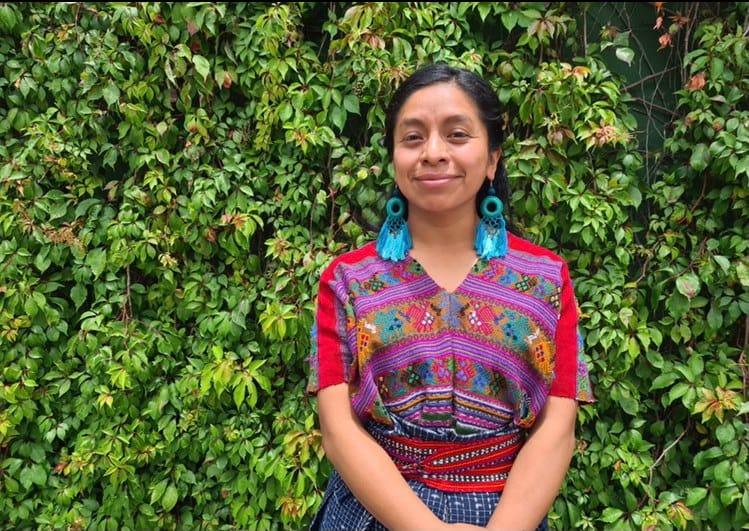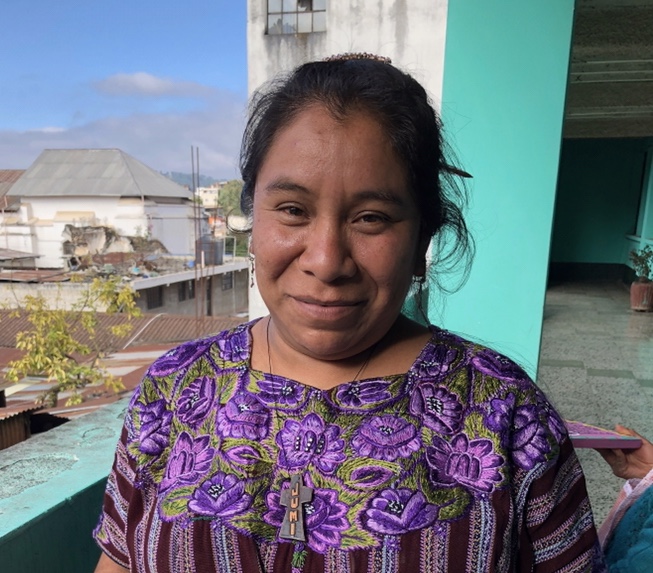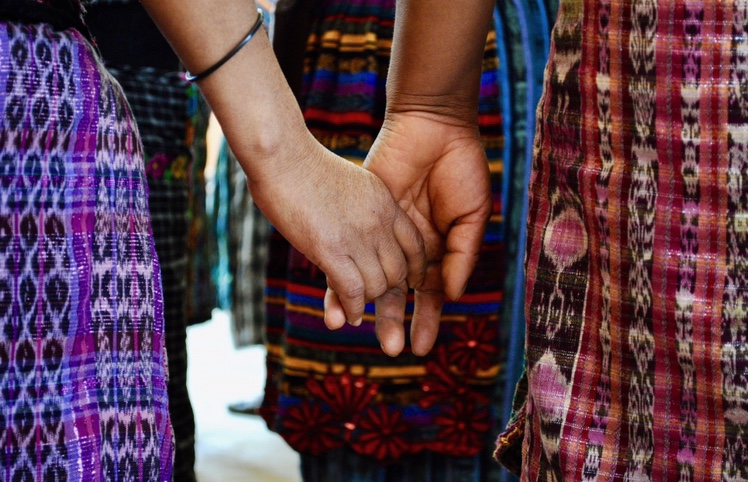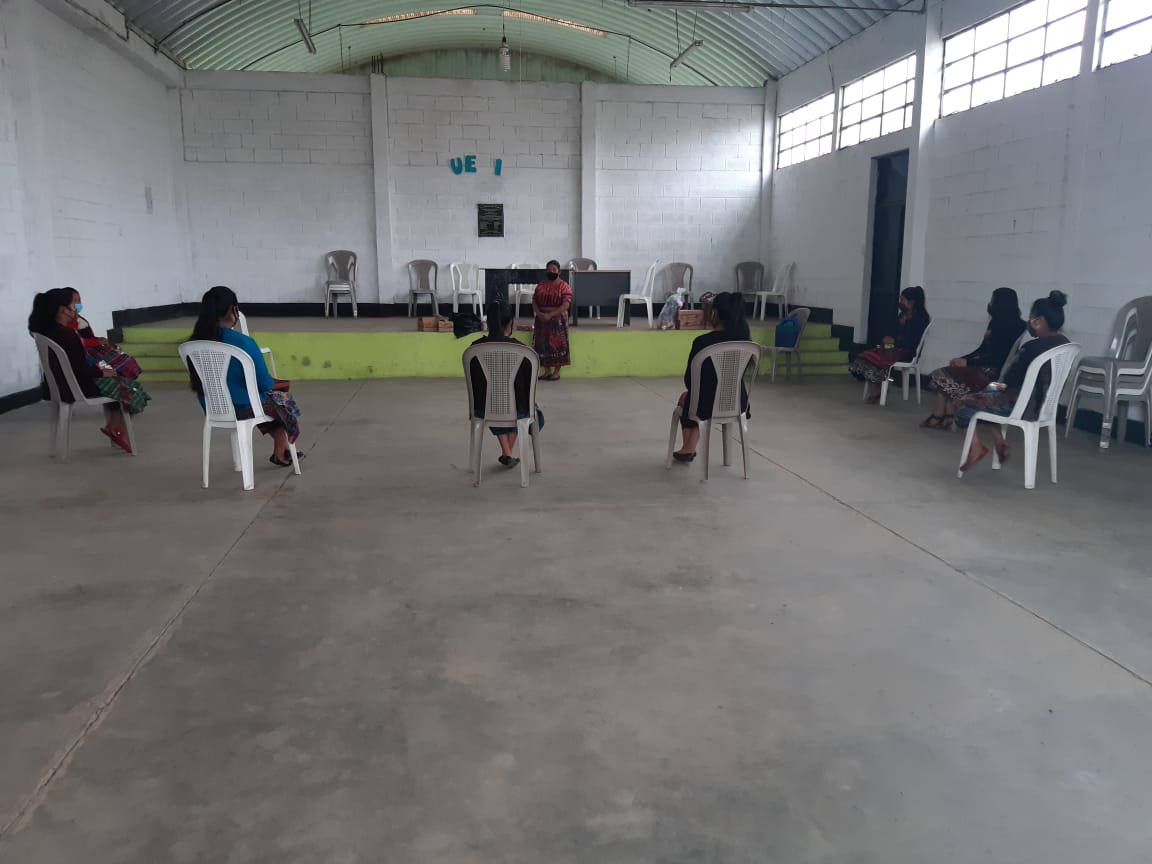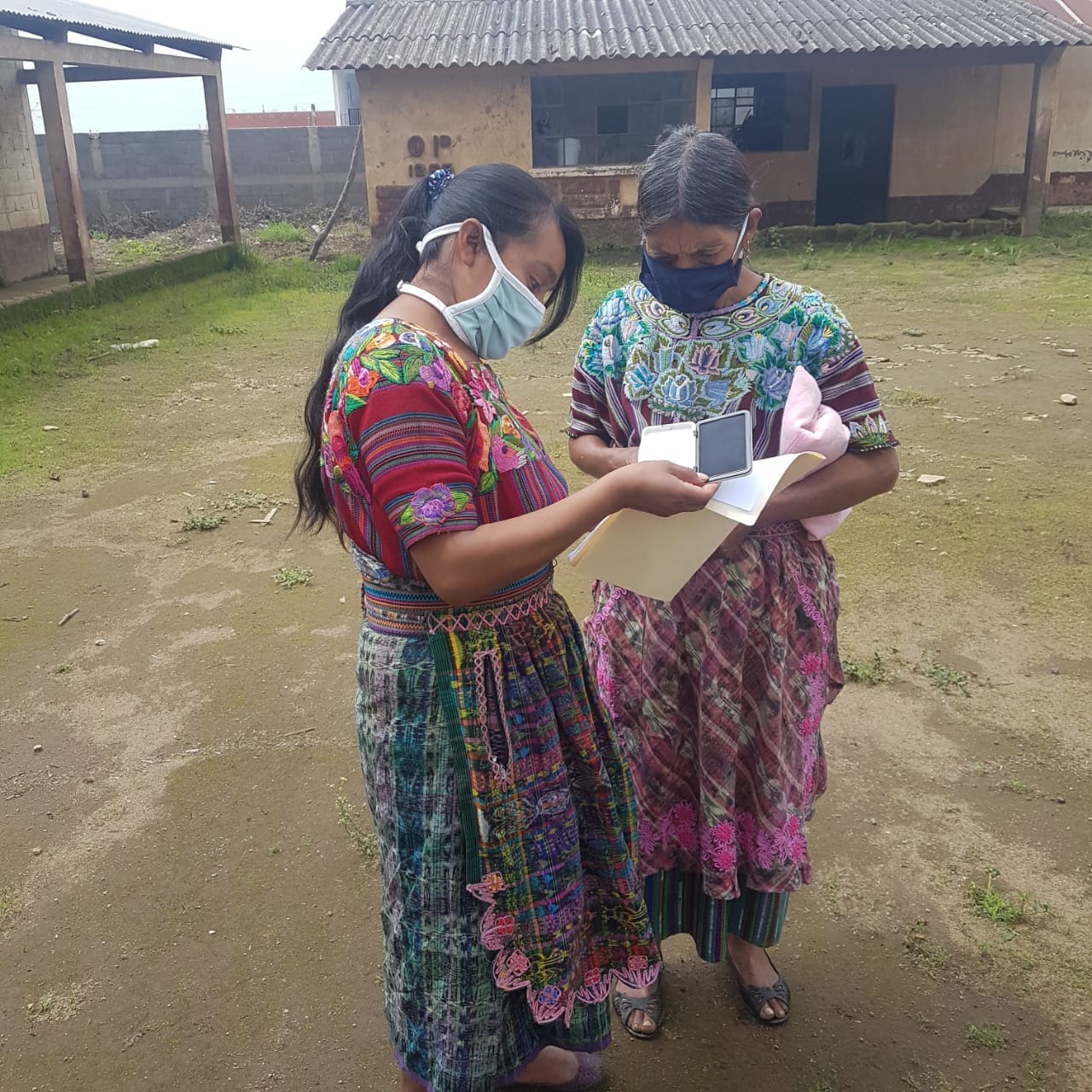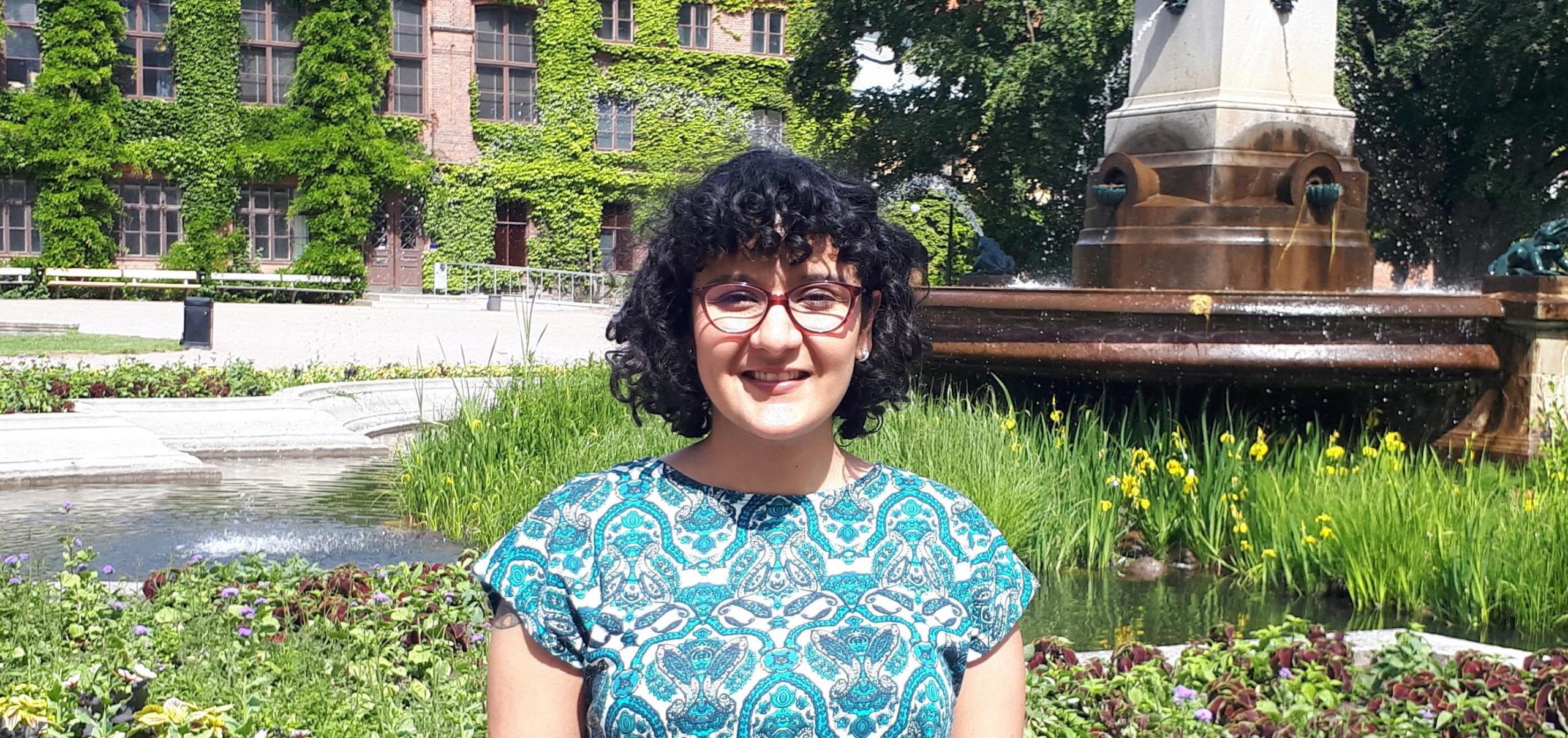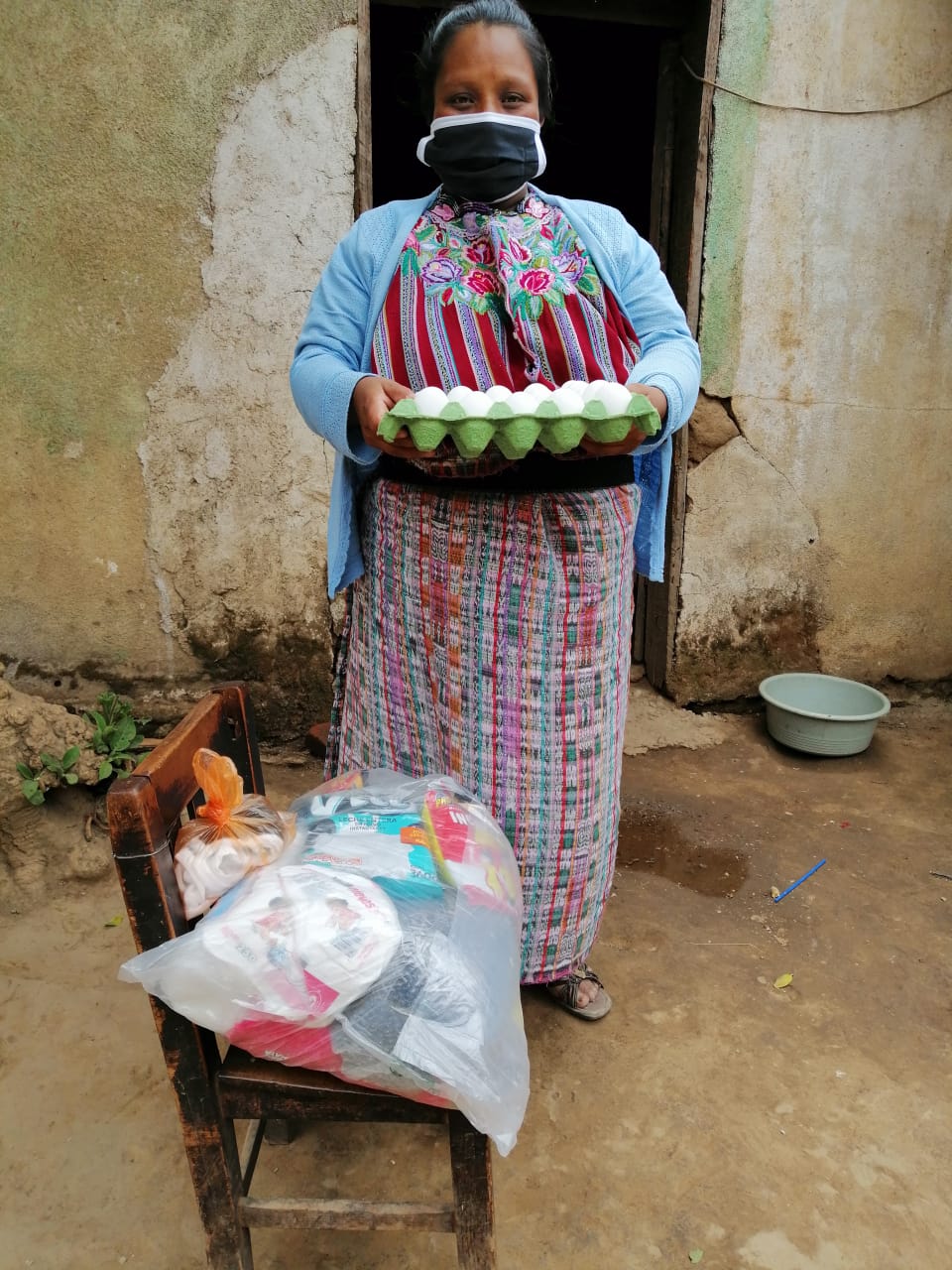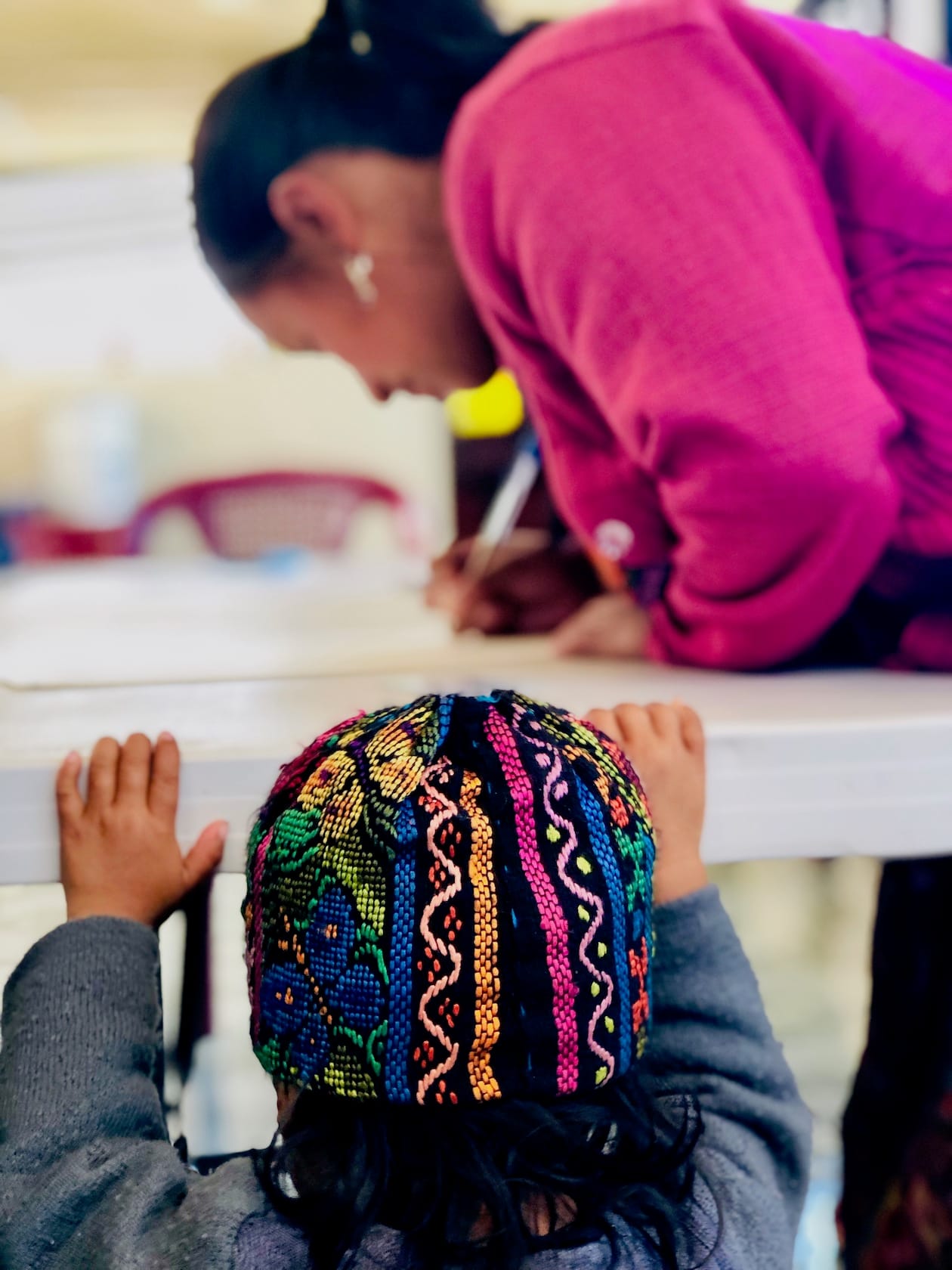During the early hours of the nightly curfew, a neighbor knocked on my door. Through tears, she told me that she had been physically abused and was afraid to go home. Fortunately, I knew how to help.
I am Candy Cumes, a 21-year-old single mother from the indigenous Maya Kaqchikel community of Paxixil in the Guatemalan Highlands. Over a year ago, I began training as a Community Advocate with the Women’s Justice Initiative (WJI). Women from neighboring communities and I attended WJI’s workshops to learn about human rights and preventing violence against women and girls. The experience was transformative. We felt as if a veil had been lifted from over our eyes.
Now, because of the pandemic, women are barely able to leave our homes and nearly everyone is prohibited from leaving the community. The disruption of public and private spaces has exposed women to more violence. As a Community Advocate, I have to be available at all times to provide support, listen, and give advice to other women. When this neighbor knocked on my door, she knew that I was the only person in our community that was trained to support survivors of violence.
The young woman told me that she was pregnant and had been physically abused by her in-laws. No one stood up for her at home -- when she left, her husband told her not to return. As I listened, I became nervous too. Remembering what I had learned through WJI’s workshops, I asked her if she was willing to report her case. She said no, she just wanted peace. I knew I had to respect her decision.
She asked me to accompany her to speak with her husband and his family. My nerves shot up, until I remembered that I had a network of experienced Advocates behind me. I sent a Whatsapp message and, within minutes, heard back from other Advocates and WJI’s psychologist and paralegal. They reassured me that I could do this.
The survivor and I went to speak with her husband. We helped him understand that violence against women is a crime that is punishable by law. He had not known that. He said he would work to make their family stronger. About two hours after I had heard that first knock, I returned home. A few days later, I saw the woman again. Smiling, she thanked me and told me she already felt stronger and safer in her home.
Although women’s rights defenders continue to face huge challenges, I am proud to have moved past my fear, shame, and other limitations that prevent women from speaking out against the violence we face. This was my first experience supporting a survivor of violence as a Community Advocate. I know it will not be my last. As my mother would say, “no one can take away your impulse to help other women, no matter the hour or the day.” Not even COVID-19 can tear down our network of strong, empowered, indigenous women’s rights defenders.

